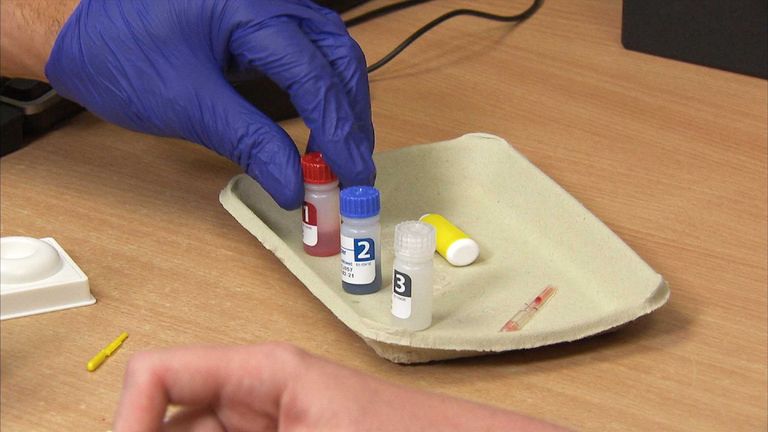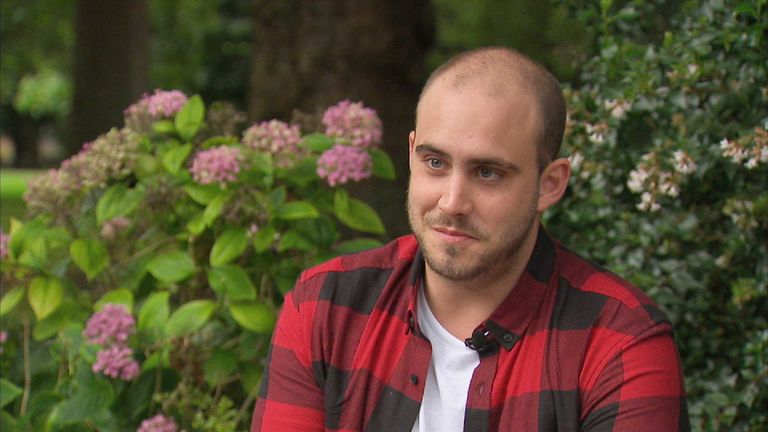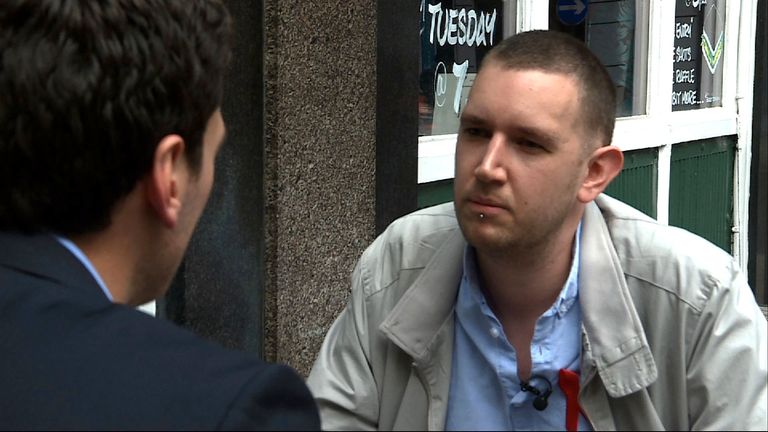HIV screening in high risk areas could save lives and money - study
There are calls for HIV screening to be rolled out to all local authorities in England with high rates of infection by the virus.
Monday 31 July 2017 22:42, UK
Researchers behind a new study into HIV testing say people in areas with high rates of the virus should be routinely screened for it at their local GP's surgery.
Scientists at Queen Mary University of London and the London School of Hygiene and Tropical Medicine say new data shows that performing an opt-out HIV test when people register at a GP's surgery is cost-effective and could save lives.
The study, published in The Lancet, examined data from an earlier research trial across 40 GP surgeries in Hackney, an area with a high HIV prevalence rate of eight in 1,000 adults.
Researchers say that using a rapid finger-prick test as part of the standard health check during registration there led to a four-fold increase in the rate of diagnosis.
They argue that catching HIV early means such screening would become cost-effective within 33 years - or even sooner once the high cost of treating patients who are diagnosed later is factored in.
Alex Causton-Ronaldson spent a week in hospital in 2014 after his HIV went undiagnosed. It was eventually discovered when he went to a clinic - referred by a GP surgery that couldn't offer an HIV test itself.
"The doctor came in and said, 'I'm sorry, I'm going to have to rush you to A&E right now. Your platelet count is so low it's dangerous. We need to admit you to hospital'," Mr Causton-Ronaldson recalled, adding that his boyfriend at the time told him he was "actually near death".
"Had I had that HIV test done at the GP's surgery I would have caught it a lot earlier."
The team behind the study are calling for the screening to be rolled out to all 74 local authorities in England with a large number of HIV cases - that is, areas where there are more than two diagnosed HIV infections per 1,000 adults - at a cost of £4m.
But the head of the Royal College of GPs, Helen Stokes-Lampard, said her colleagues, who often have just 10 minutes to spend with each patient, cannot take on the extra work.
"Normalising testing for HIV to reduce stigma is a good step forward and we urge patients who believe they may be at risk to be tested," she said.
"However, It is difficult to see how hard-pressed GPs and their teams could actually do this without significant additional investment in screening services in the community, including more GPs and members of the practice team as well as additional support for all sexual and reproductive healthcare services."
Michael Brady, the medical director of the Terrence Higgins Trust, said he hopes that the increasing availability of self-testing kits could alleviate that problem.
In the meantime, he said: "It makes financial sense to invest in testing to prevent the extra cost to the NHS down the line."
The UK currently has 13,500 people who do not know that they have HIV, and 40% of those who are infected come late to diagnosis.





